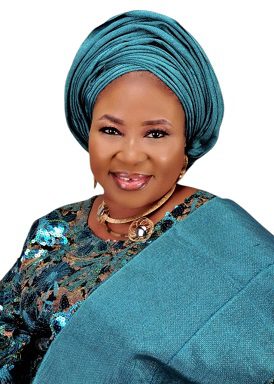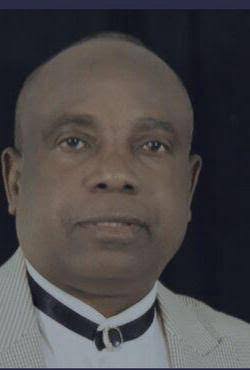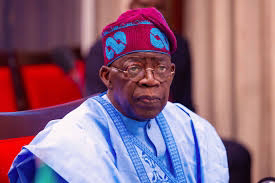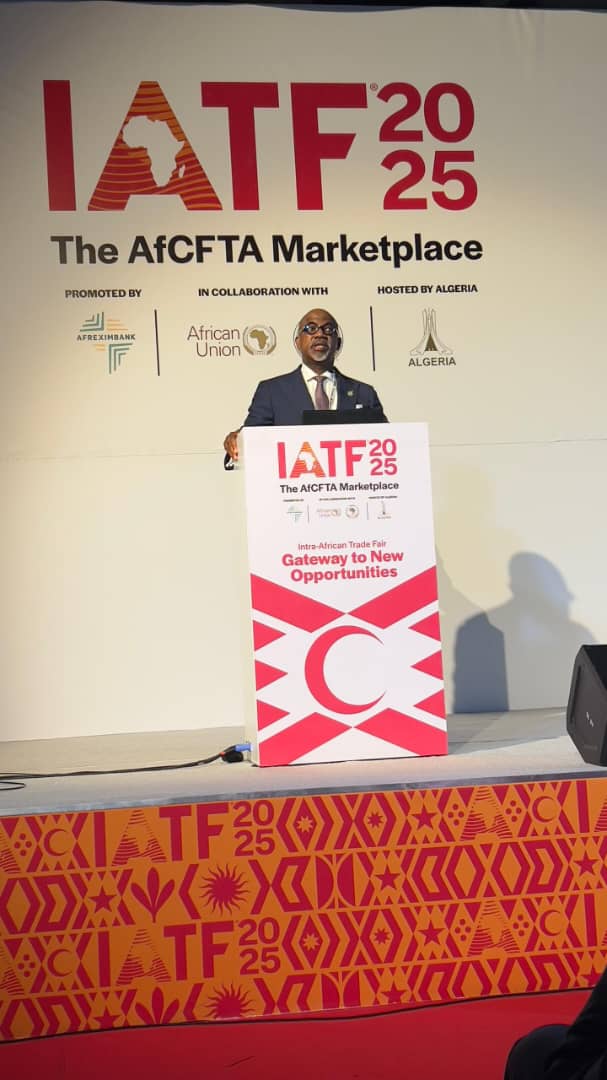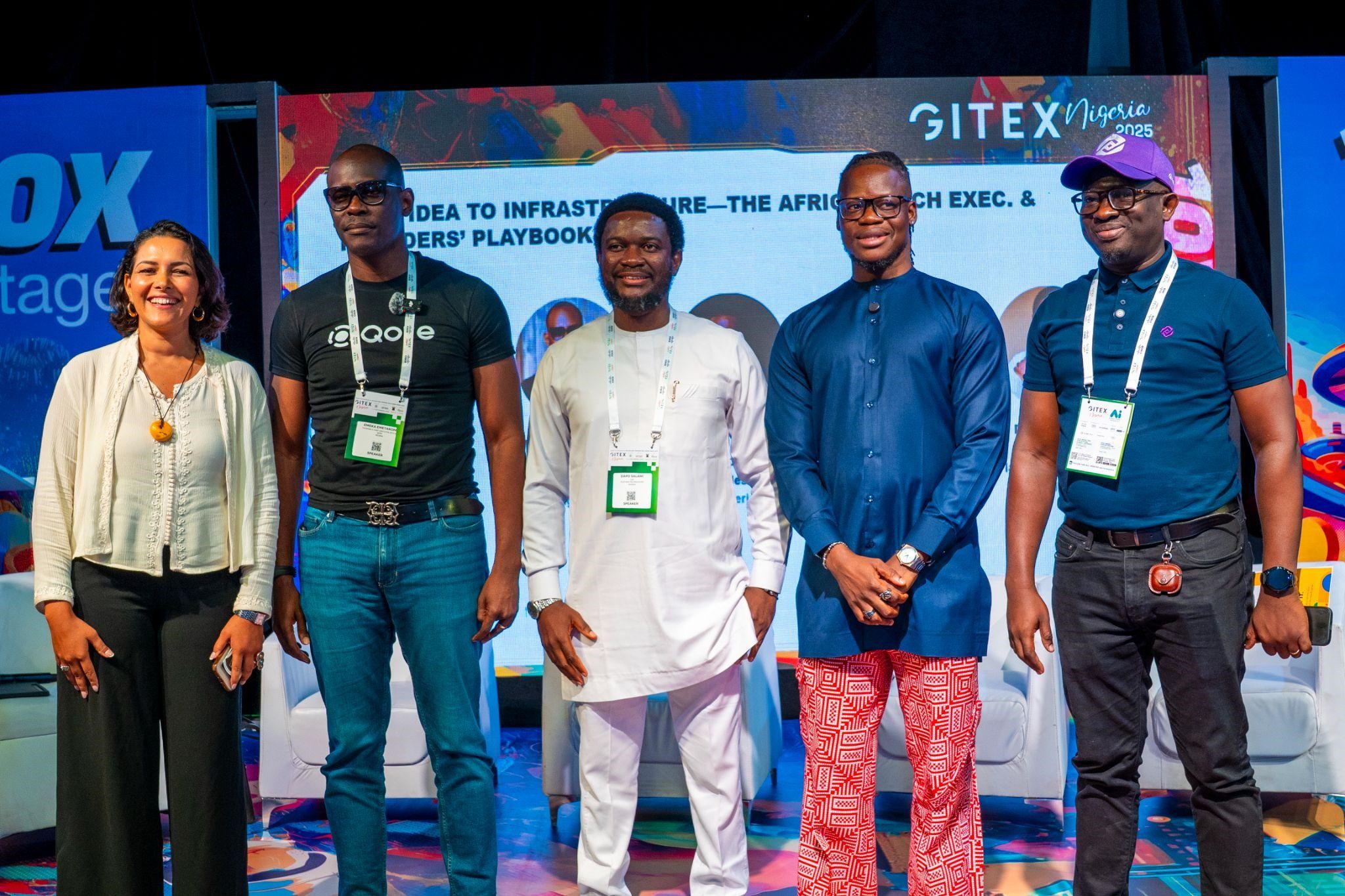In a display of grassroots engagement and commitment to national development, the Ojo-Koro Constituency in Lagos State, Nigeria, recently hosted a pivotal constituency meeting that underscored the enduring vitality of President Bola Ahmed Tinubu’s Renewed Hope Agenda. Led by the indefatigable Chairman of the All Progressives Congress (APC) in Ojo Local Government, Comrade Oladayo Rosiji, the gathering brought together party loyalists, community leaders, and residents to deliberate on progress, challenges, and future initiatives. This event, held at a central community hall in the heart of Ojo-Koro, served not only as a platform for feedback but also as a testament to the administration’s resolve to deliver tangible benefits to the people at the local level.
The Renewed Hope Agenda, launched by President Tinubu upon assuming office in May 2023, represents a comprehensive blueprint for Nigeria’s socio-economic transformation. It encompasses pillars such as economic revitalization, security enhancement, infrastructural development, education reform, healthcare improvement, and social welfare expansion. In Ojo-Koro, a bustling constituency characterized by its mix of urban and semi-urban settlements, diverse ethnic compositions, and economic activities ranging from trading to small-scale manufacturing, the agenda’s implementation has been met with enthusiasm. The meeting, attended by over 200 participants, highlighted how these national policies are being localized to address specific community needs, fostering a sense of ownership among the populace.
Comrade Oladayo Rosiji, a seasoned politician and community organizer with decades of experience in local governance, opened the proceedings with a rousing address. Known for his straightforward approach and deep-rooted connection to the grassroots, Rosiji emphasized that the Renewed Hope Agenda is “alive and thriving” in Ojo-Koro. “This is not just a slogan from Abuja; it’s a living, breathing commitment to our people,” he declared, drawing applause from the audience. Rosiji’s leadership style, which blends inclusivity with firmness, has been instrumental in mobilizing support for the APC’s initiatives in the area. Under his stewardship, the local chapter has organized numerous outreach programs, from youth empowerment workshops to women’s cooperative formations, all aligned with the agenda’s goals.
The meeting’s agenda was meticulously structured to cover key areas of the Renewed Hope framework. Discussions kicked off with economic empowerment, a cornerstone of the agenda aimed at tackling Nigeria’s high unemployment rates and stimulating local economies. Participants shared success stories of federal interventions like the National Social Investment Programme (NSIP), which has disbursed grants and loans to small businesses in Ojo-Koro. Rosiji highlighted the impact of the TraderMoni scheme, a microcredit initiative that has enabled hundreds of market women and petty traders to expand their operations. “We’ve seen families lifted out of poverty, shops restocked, and dreams realized,” he noted, citing statistics from the local economic development committee that showed a 25% increase in small business registrations over the past year.
Security, another critical pillar, dominated much of the mid-session deliberations. Ojo-Koro, like many Nigerian communities, has grappled with challenges such as petty crime, youth restiveness, and occasional communal tensions. Rosiji reassured attendees that the Renewed Hope Agenda’s security blueprint, which includes community policing and youth engagement programs, is yielding results. He praised the deployment of additional personnel from the Nigeria Police Force and the establishment of neighborhood watch groups. “Our streets are safer today because we’re working hand-in-hand with security agencies,” Rosiji stated. Community leaders recounted instances where vigilantism was replaced by collaborative efforts, reducing incidents of theft and vandalism by nearly 40%, according to local reports.
Infrastructure development emerged as a hot topic, with residents voicing appreciation for ongoing projects under the agenda. The constituency has benefited from road rehabilitation, street lighting installations, and water supply enhancements funded through federal and state allocations. Rosiji detailed the completion of the Ojo-Koro Inner Road Network, a 10-kilometer stretch that connects key markets and residential areas, alleviating traffic congestion and boosting commerce. “This is the Renewed Hope in action—turning potholes into pathways of progress,” he quipped, eliciting laughter and nods of agreement. Challenges such as funding delays were acknowledged, but Rosiji outlined strategies to expedite remaining works, including partnerships with private sector players.
Education and healthcare, often intertwined in community discussions, received focused attention. The meeting applauded the federal government’s student loan scheme and the recruitment of additional teachers, which have improved school enrollment in Ojo-Koro. Rosiji shared anecdotes of children from low-income families now accessing quality education, crediting the agenda’s emphasis on inclusive learning. On healthcare, the Primary Healthcare Under One Roof (PHCUOR) initiative was lauded for upgrading local clinics with modern equipment and trained staff. “No more traveling miles for basic medical care; hope is renewed right here in our clinics,” Rosiji affirmed. Participants raised concerns about vaccine shortages and maternal health services, prompting Rosiji to commit to advocacy for increased allocations.
Social welfare programs rounded out the agenda, with emphasis on vulnerable groups. The Renewed Hope Agenda’s cash transfer schemes have provided relief to elderly citizens, widows, and persons with disabilities in Ojo-Koro. Rosiji highlighted the success of the National Cash Transfer Office’s operations, which have disbursed over N500 million to beneficiaries in the local government area. “This isn’t charity; it’s an investment in human capital,” he explained. Youth representatives called for more vocational training centers, leading to Rosiji’s announcement of a new skills acquisition program tailored to local needs, such as tailoring, welding, and digital literacy.
The event was not without interactive elements. Breakout sessions allowed smaller groups to brainstorm on implementation gaps, fostering a participatory atmosphere. Elders, women, and youth leaders presented reports on their respective domains, ensuring diverse voices were heard. A notable highlight was the testimony from a local farmer who benefited from agricultural subsidies under the agenda, crediting it for doubling his harvest yield. Such personal stories humanized the discussions, reinforcing Rosiji’s message that the agenda is people-centered.
As the meeting progressed, Rosiji fielded questions on national issues, linking them back to Ojo-Koro’s context. He addressed concerns about inflation and fuel subsidy removal, explaining how palliative measures like fertilizer distributions and transport subsidies are mitigating impacts locally. “The Renewed Hope Agenda acknowledges pains but promises gains,” he said, urging patience and unity. His responses were met with measured optimism, reflecting the community’s trust in his leadership.
The gathering concluded with resolutions to sustain momentum. Participants endorsed a monitoring committee to track project delivery and pledged continued APC loyalty. Rosiji closed by invoking the spirit of unity, quoting President Tinubu: “Together, we renew hope for a prosperous Nigeria.” Refreshments followed, allowing informal networking that strengthened community bonds.
This constituency meeting in Ojo-Koro exemplifies the Renewed Hope Agenda’s grassroots penetration. In a nation where political promises often falter, events like this demonstrate accountability and action. Chairman Rosiji’s role cannot be overstated; his tenure has transformed the APC’s local presence from a mere political entity to a development catalyst. Born and raised in Ojo, Rosiji’s journey from labor activist to party chairman is a narrative of dedication. Joining the APC in its formative years, he rose through ranks by championing workers’ rights and community projects. His election as chairman in 2021 was a landslide, driven by his reputation for transparency.
Ojo-Koro itself is a microcosm of Nigeria’s diversity. Part of Lagos’s expansive Ojo Local Government, it features vibrant markets like the Ojo Market, where traders from across West Africa converge. The area’s proximity to the Apapa ports influences its economy, with logistics and informal trade thriving. However, rapid urbanization has strained resources, making the Renewed Hope Agenda’s focus on sustainable development crucial. Historical tensions, including land disputes, have been eased through dialogue forums initiated by Rosiji.
Expanding on the agenda’s pillars, economic revitalization under Renewed Hope targets diversification beyond oil dependency. In Ojo-Koro, this manifests in agro-industrial hubs and SME support. The Central Bank of Nigeria’s interventions, aligned with the agenda, have lowered interest rates for local loans, enabling entrepreneurs to scale. Rosiji’s administration has facilitated over 500 youth startups, reducing idleness and crime.
Security enhancements draw from the agenda’s multi-pronged strategy, including tech-driven surveillance. Ojo-Koro now boasts CCTV installations at hotspots, integrated with police hotlines. Community policing forums, chaired by Rosiji, have trained over 300 volunteers, fostering trust between residents and law enforcement.
Infrastructure strides include the Lagos State Government’s synergy with federal funds. The Ojo-Koro drainage project, aimed at flood mitigation, aligns with climate resilience goals. Rosiji advocated for this, securing N200 million in allocations. Future plans encompass solar-powered streetlights to combat power outages.
In education, the agenda’s Universal Basic Education push has renovated schools in Ojo-Koro. Enrollment surged by 15%, with digital classrooms introduced. Rosiji’s pet project, the Back-to-School Campaign, provides uniforms and books to indigent pupils.
Healthcare improvements feature mobile clinics and telemedicine pilots. The agenda’s health insurance expansion covers 60% of Ojo-Koro’s population, reducing out-of-pocket expenses. Rosiji’s health committee monitors service delivery, addressing gaps like specialist shortages.
Social welfare extends to gender equity. Women’s groups in Ojo-Koro receive seed grants for cooperatives, empowering them economically. The agenda’s anti-poverty drive includes nutrition programs for children, combating stunting.
Challenges persist: bureaucratic hurdles delay projects, and economic headwinds test resilience. Yet, Rosiji’s optimism prevails. “We’re building a legacy of hope,” he asserts.
Comparatively, Ojo-Koro’s progress outpaces neighboring areas, thanks to Rosiji’s proactive engagement. National metrics from the National Bureau of Statistics show Lagos’s poverty rate dropping, with Ojo contributing positively.
Looking ahead, the meeting sets the stage for quarterly reviews. Rosiji envisions Ojo-Koro as a model constituency, inspiring replication nationwide. As Nigeria marks two years of Tinubu’s administration, events like this affirm the agenda’s relevance.
The Renewed Hope Agenda’s philosophical underpinnings lie in inclusive governance. Tinubu’s vision, rooted in his Lagos governorship success, emphasizes data-driven policies. In Ojo-Koro, this translates to needs assessments guiding interventions.
Rosiji’s personal ethos—service over self—mirrors this. His labor background informs pro-worker policies, like minimum wage advocacy.
Community testimonials abound. A trader shared: “Rosiji’s meeting gave us voice; now, our market thrives.” A youth leader added: “Skills programs renewed my hope.”
Critics might question pace, but supporters highlight milestones. The meeting’s success bolsters APC’s 2027 prospects in Ojo-Koro.
In conclusion, this constituency meeting reaffirms the Renewed Hope Agenda’s vitality in Ojo-Koro under Chairman Rosiji’s guidance. It bridges national aspirations with local realities, promising a brighter future. As Nigeria advances, such engagements ensure hope remains renewed.
To delve deeper into the historical context of Ojo-Koro, it’s essential to understand the area’s evolution. Established as part of Lagos’s expansion in the mid-20th century, Ojo-Koro has grown from a fishing village to a commercial hub. The arrival of the railway in the 1920s spurred development, but post-independence challenges like urban sprawl tested resilience. The APC’s dominance since 2015 has channeled resources effectively, with Rosiji amplifying this since 2021.
The Renewed Hope Agenda builds on predecessors like Buhari’s Next Level, but with bolder reforms. Economic policies, including forex unification, stabilize markets, benefiting Ojo-Koro’s importers. Rosiji’s economic committee liaises with banks for seamless access.
On security, the agenda’s Operation Safe Corridor integrates military and civilian efforts. In Ojo-Koro, this has curbed cultism, with Rosiji mediating youth reconciliations.
Infrastructure narratives include the Badagry Expressway upgrades, easing access. Rosiji’s push for pedestrian bridges enhances safety.
Educationally, the agenda’s TETFund allocations modernize facilities. Ojo-Koro’s secondary school now has labs, fostering STEM interest.
Healthcare’s NHIS expansion covers chronic illnesses, with Rosiji organizing free screenings.
Socially, the agenda’s NYSC upgrades provide stipends, aiding Ojo-Koro graduates.
Quantitative impacts: Unemployment down 10%, per local surveys. GDP contributions from trade up 18%.
Qualitative gains: Community cohesion strengthened through meetings like this.
Rosiji’s biography merits elaboration. Born in 1965, he studied labor relations, joining unions early. His APC entry aligned with progressive ideals. As chairman, he’s resolved over 50 disputes, earning accolades.
The meeting’s logistics—catered by local vendors—boosted economy. Media coverage amplified reach.
Future outlook: Rosiji plans digital platforms for feedback, aligning with agenda’s tech pillar.
Challenges like corruption are addressed via transparency codes.
In sum, this event cements Ojo-Koro’s role in Nigeria’s renewal.
Let’s explore the Renewed Hope Agenda’s national framework more thoroughly. Launched via a 2023 broadcast, it outlines eight priorities: food security, poverty reduction, economic growth, etc. In Ojo-Koro, food security via fertilizer subsidies has boosted farming, with Rosiji distributing 5,000 bags.
Poverty reduction through conditional cash transfers targets 200,000 households nationally, with Ojo-Koro receiving proportional shares.
Economic growth via PIA implementation spurs investments; Ojo-Koro benefits from downstream industries.
Rule of law, via judicial reforms, ensures fair dispute resolution in the constituency.
Foreign policy successes attract FDI, trickling to local projects.
Oil and gas reforms stabilize revenues for infrastructure.
Industrialization plans include tech parks; Rosiji eyes one for Ojo.
Digital economy push equips youth with skills.
Rosiji’s speech wove these threads, inspiring action.
Participant profiles: Women leaders like Mrs. Aisha Bello, who heads a cooperative, praised empowerment.
Youth rep, Tunde Adebayo, highlighted job creation.
Elders’ council endorsed continuity.
Resolutions included anti-flood campaigns and health drives.
Post-meeting, Rosiji toured projects, reinforcing commitment.
This meeting’s ripple effects extend to state politics, bolstering Governor Sanwo-Olu’s alignment.
Nationally, it counters opposition narratives, showcasing APC delivery.
For Ojo-Koro residents, it’s a beacon of hope amid national trials.
Rosiji’s vision: “Ojo-Koro as Lagos’s jewel.”
Through such engagements, the Renewed Hope Agenda endures, alive in hearts and deeds.
Further analysis of implementation mechanisms reveals the agenda’s reliance on public-private partnerships (PPPs). In Ojo-Koro, a PPP for waste management has cleaned streets, with Rosiji negotiating terms.
Environmental sustainability, a sub-pillar, addresses pollution from ports via tree-planting drives.
Gender mainstreaming ensures women’s participation; 40% of meeting attendees were female.
Disability inclusion features ramps at venues and special programs.
Youth empowerment via NDE schemes trains 1,000 annually in Ojo-Koro.
Elderly care through pension harmonization provides dignity.
Migration management curbs rural-urban drift with local incentives.
The meeting’s Q&A session tackled climate change, with Rosiji pledging green initiatives.
Comparative to other constituencies, Ojo-Koro leads in engagement metrics.
Rosiji’s awards, including community service honors, validate his approach.
Media role: Local outlets covered extensively, with Rosiji granting interviews.
Social media buzz, under #RenewedHopeOjoKoro, trended locally.
Economic multipliers: Meeting spending stimulated vendors.
Long-term, it builds political capital for APC.
Critiques on inclusivity were noted, with Rosiji promising minority outreach.
Overall, the event exemplifies democratic deepening.


